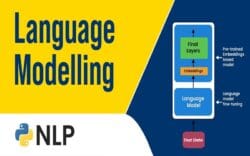What Is Keyword Optimization?
In the ever-evolving landscape of digital marketing, keyword optimization has become a cornerstone for driving organic traffic to websites. Understanding how to effectively utilize keywords can dramatically improve your search engine visibility, making it more likely that potential customers will find you online. But what exactly is keyword optimization, and how can you leverage it to enhance your SEO strategy?
Introduction to Keyword Optimization
SEO, web optimization, meta-description and meta tags is a set of strategies that aim to improve the positioning of web pages in search engines. Currently, most people use search engines to navigate websites, and SEO lets you get as close to the first place as possible. When a user enters a word or phrase in a search engine, the pages related to the inquiry appear in a list. The listed pages have various results in ranks. The first results are the ones that people are looking for, and when someone clicks on it, that’s a communication goal achieved by the company.
A page’s ability to rank something in the search engines depends on its content, structure, link building, and usage, and includes strategies with fundamental aspects in site development. One of the most talked about SEO strategies is; that is, optimizing web pages with keywords that users normally use in searches in order to attract more qualified visitors to your site.
keyword optimization is the process of researching, analyzing, and selecting the best keywords to drive targeted traffic from search engines. This practice involves not just choosing words that are popular but also understanding the intent behind those words. When people search for specific terms, they’re usually looking for something in particular—be it information, a product, or a service.
To optimize for keywords effectively, you will need to start with keyword research. Tools like Google Keyword Planner or Ahrefs can provide valuable insights into search volume, competition, and related phrases. Identifying keywords that align with a website content’s purpose while considering user intent is crucial. For instance, someone searching for “best running shoes” is likely ready to make a purchase, whereas another person searching for “running shoe reviews” may be in the research phase.
In keyword optimization strategies we learn to prioritize the most important words and identify which audiences they relate to. And most importantly, understand that this tool does is attract users—administrators of e-commerce, large web systems, blogs, or small sites—depends greatly on the previous planning we perform. This means that, before creating a website or content, it is necessary to understand the principles of keyword optimization in order to present useful, user-friendly information, not to do anything haphazardly.
In search terms, a keyword refers to a word or words that people enter into search engines to find web pages on that subject. However, in digital marketing, the term ‘keyword’ usually refers to a term, phrase, or truth that identifies the content or underlying theme of a web page, in this case referring to SEO. In other words, the keyword is the subject, theme, content clue, or even a piece of metadata. This should be present as well as properly featured throughout the page in strategic positions determined by a keyword analysis and preferably featured in the URL. It can be an original keyword for a post on a blog, for example, or it can be part of a phrase. If it is a phrase, it can be big – three to five words, or long-tail – five words or more.
Keywords Translation
People access the internet in a variety of languages; therefore, keyword translation is essential. This entails posting multilingual information online in order to establish a presence on foreign search engines.
Properly translated keywords help improve search engine rankings in different languages, making it easier for target audiences to find your content. Accurate keyword translation ensures that you capture the intent behind what users are searching for in their native language, leading to higher engagement and conversion rates. Keywords translation is crucial for effective communication and marketing in a globalized world.
Businesses that invest in proper keyword translation can outperform competitors who overlook this aspect, especially in saturated markets. In summary, keywords translation is vital for reaching and engaging diverse audiences, driving traffic, and ensuring effective communication in a multilingual landscape.
Conclusion
All of these methods must be integrated for a corporation or business to execute a successful marketing campaign. Effective marketing is essential to the success of any firm. Increase the worth of your company now by launching an effective marketing strategy that results in a lucrative company.














